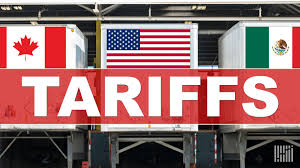Should We Run Some Controlled Climate Change Experiments?
I’ve posted a lost about the uncertainties associated with climate change. A very interesting Yale360 article by Jeff Goodell about geoengineering had a remark about experimentation that started me thinking. Here’s the remark:
Virtually everyone at the conference agreed that further research into geoengineering is a good idea. “We need to figure out what works and what doesn’t,” David Keith argued. Not surprisingly, conflict arose when the discussion moved on to whether or not it was time to run some field experiments in the real world. . . . Keith argued for the importance of field experiments as a way of testing our knowledge — as well as the accuracy of climate models. “We only found out about the hole in the ozone because we went out and did some experiments,” he argued. “If we would have relied entirely on models, we might never have found it.” In the view of others, it was also a question of urgency: “We don’t want to do modeling for the next 20 years while the Arctic melts,” one scientist told me.
The idea of using small-scale geoengineering as a way to improve climate models is intriguing. I wonder whether we could do this in both directions, rather than just field-testing efforts to reduce warming. How about using space mirrors or black carbon to increase the amount of heat on a glacier for a few years, as a test of the effect of continued warming? Or doing the same for a large patch of rain forest, or on a part of the ocean to test the effects on cloud formation? Or we could test the effects of aerosols by turning off power plant scrubbers for a few weeks.
Obviously, experiments like this wouldn’t tell us about shifts in global patterns, but it might help with improving the finer-grained features of the model. It’s true that there would be risks of adverse local effects and problems about getting the consent of the affected population (if any). But would this kind of experimentation teach us enough about climate to be worthwhile?
Controlled experiments in general are the best way of doing science, but we haven’t been able to take advantage of that in climate science. Considering the importance of the climate change issue, it might be worth taking a serious look at this possibility, even if it does seem a little outside the box.






Reader Comments